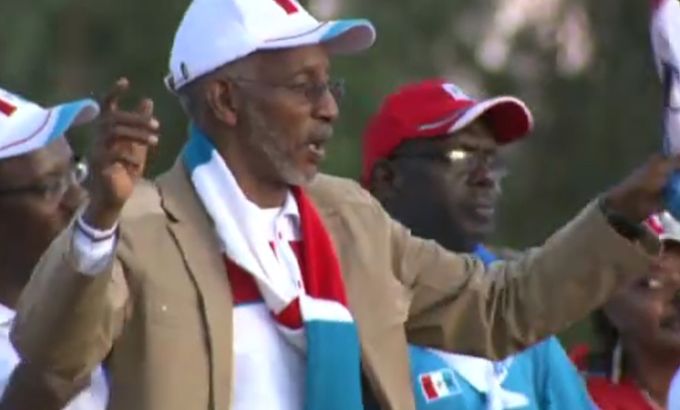Rwandans to elect new parliament
Opposition claims it has been shut out of political process, as ruling party looks set for overwhelming victory.

Rwanda is set to head to the polls in a parliamentary election that is likely to extend the dominance of the Rwandan Patriotic Front (RPF).
Opposition parties say Monday’s polls will be unfair as they have been blocked out of the political process by the ruling RPF.
But the party of President Paul Kagame says it has done everything it can to avoid political conflicts that have triggered violence in the past.
The central African nation has been dominated by RPF of President Paul Kagame since 1994, when his rebel army unseated Hutu fighters and ended a genocide that left an estimated 800,000 people dead.
Since the horrific events of 1994, when the outside world stood idle while ethnic Tutsis were hacked to death en masse, Kagame’s RPF has been credited with producing an African success story.
Economic growth is robust, crime is low and corruption levels are the lowest on the continent.
According to the World Bank, Rwanda is one of the three best places in sub-Saharan Africa to do business.
But the tiny political opposition say the country’s democracy is a little less healthy, with anyone existing outside the RPF fold facing the realities of a one-party political culture – not through a government policy of repression but more an inability of officials at all levels to adopt a multi-party mindset.
The PS-Imberakuri party, one of three groups trying to win a few seats from the RPF-led coalition, said in some cases over-zealous local authorities were preventing other parties from even holding basic campaign rallies.
“The local authorities tell people not to go to rallies, and that if they do they’ll have problems, and so some people are scared of coming,” party president Christine Mukabunani told the AFP news agency.
“They assume that an opposition is an enemy and will cause trouble.”
Independent candidate Gilbert Mwenedata said that his supporters had been prevented from putting up campaign posters, although he said the authorities did resolve the problem when he complained.
“The problem is the political culture,” he said, explaining that Rwanda, long dominated by the RPF and understandably wary of any instability, was still uncomfortable with the idea of a multi-party system.
“Many people in the local authorities don’t even know what an independent candidate is,” he said.
Voting begins at 0500 GMT Monday at nearly 15,500 polling stations.
Some six million people are eligible to cast their ballots, with direct voting Monday for 53 seats, followed by a further 24 seats reserved for women to be chosen Tuesday by women’s groups and local councils.
On Wednesday, representatives of the youth and the disabled will be named.